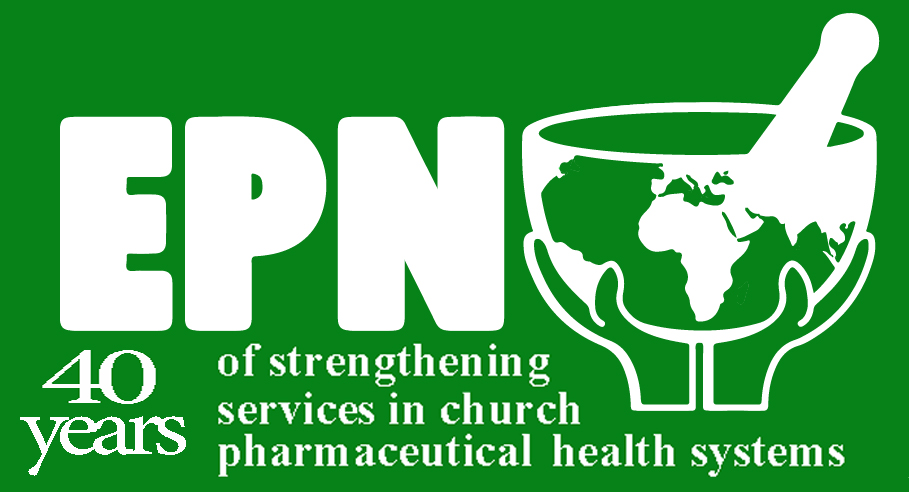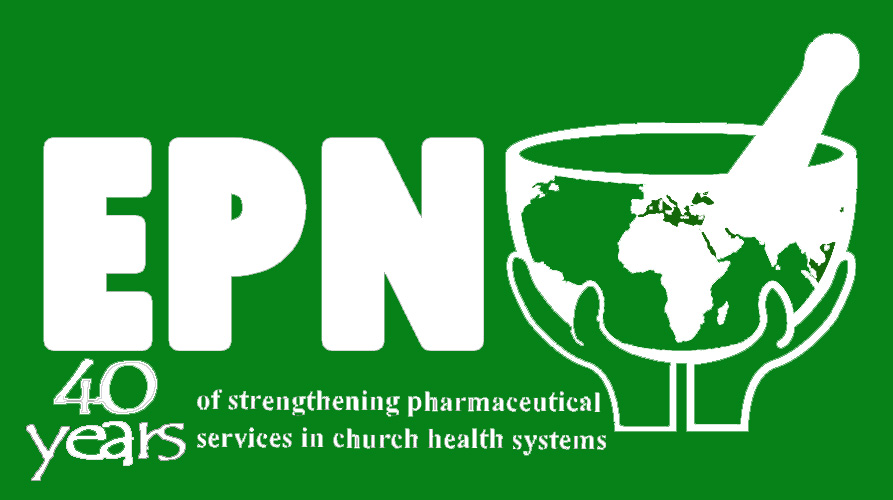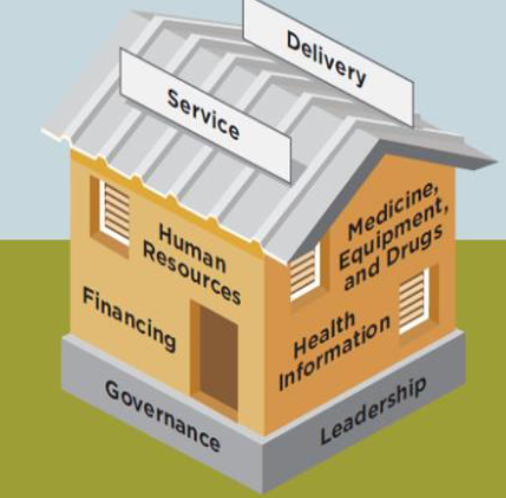On 24th May 2021, EPN held its second webinar that is part of series webinars planned for the year. The goal to share experiences and best practices on emerging issues in pharmaceutical health services within faith-based health facilities across among EPN members, donors, partners and friends.
The first webinar was held in February and was themed; enhancing the delivery of good quality pharmaceutical services and products in the context of global challenge of the COVID-19. The second webinar focused on the topic; Capacity building of pharmaceutical staff in church Health institutions: gaps and way forward. This webinar featured presentations from three speakers.
• Mrs. Agnes Njue, Capacity Building Manager, Mission of Essential Drugs and Supplies (MEDS) – MEDS Experience Capacity Building
• Prof. Richard Neci, Executive Director, EPN – EPN’s renewed focus on capacity building.
• Dr. Richard Laing’, Global Health Expert, Boston University, USA – Capacity building of pharmaceutical staff in church Health institutions: gaps and way forward
In this webinar, the speakers delved into the topic, sharing their experiences and lessons on the role of capacity building and addressing issues of pharmaceutical staff capacity in church Health institutions. The webinar also discussed on innovating and leveraging available opportunities and new innovative ways and tools of delivery learning. We share some takeaways from this webinar.
Here are some key takeaways;
- Through functional responsive health systems healthcare goals can be achieved. Capacity building add skills, fill gaps, generate efficiencies, thereby creating sustainable health systems. This ensures reliability and resilience even during adverse emergency situations.
- Health systems components are interdependent, however, may face unique challenges. Through adaptive holistic approaches, capacity building needs to not just focus on healthcare workers in clinical care but also cut across all the pillars of a health system including governance and leadership, human resource, customer care, health commodities etc.
- Identification of facility or case-specific gaps is useful in distinguish a health institution or facility needs including the specific pressing training needs. Needs assessment offers reference points for pin-pointing key priority areas and tracking of progress especially in low resource settings.
- Continuous learning for healthcare workers is fundamental. Apart from professional education, additional learning for pharmacists and the various staff at the different levels of healthcare facilities is required to maintain, improve their skills, adapt to changing trends of the healthcare systems and also improve quality of healthcare services delivery.
- While learning is an active process, it requires not only listening, watching or reading, it also involves reacting and feedback. People learn through combination of ways, and it is an important consideration for FBOs to use different learning approaches to deliver training lessons in order to ensure effective delivery of information.
- The prevailing global health situation of COVID-19 pandemic has been challenging, but has also opened a new window for faith-based institutions to leverage on in capacity development. Through e-learning, these institutions can provide flexible, user-centered, and easily updatable
- information for health worker training. Featuring various useful tools like social learning, collaboration, and interactive learning materials. EPN with MEDS have already set up an online learning management system to run their various courses.
- Despite the existing and arising challenges/adversities, institutions are called to remain strategic in their vision. With the outbreak of COVID-19 pandemic, a lot of disruptions were witnessed in the healthcare systems especially in LMICS including disruption of supplies of health commodities, strained human resources and infrastructure, health financing among others. However, an institution strategic vision is a tool that should guide in alignment and developing adaptive response measures and approaches.
- Trainings and capacity building is key in acquiring necessary skills and competences that will take us to the next level as health institutions in ensuring the delivery of quality health outcomes. There is need to adapt to new modes of delivery. EPN and its partners remains steadfast in upskilling healthcare workers with necessary skills to deliver quality pharmaceutical care in their facilities.






Responses